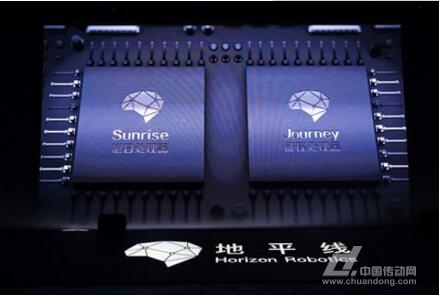On the 20th, the Horizon Robotics team, a leading advanced technology enterprise from Zhongguancun, unveiled China's first embedded artificial intelligence vision chip. This breakthrough marks a significant step forward in the field of AI visual recognition, as the chip can identify up to 200 visual targets per frame simultaneously. It is expected to play a crucial role in advancing smart driving and smart city initiatives across China.

(Source: Internet)
According to reports, the Horizon Robotics team introduced two key processors: the "Journey 1.0" for autonomous driving and the "Sunburst 1.0" for smart cameras. These chips are entirely developed in-house by the Chinese company and feature high performance, low power consumption, and minimal latency. They can be directly embedded into terminal devices, making them highly versatile for various applications.
The "Journey 1.0" processor excels at real-time detection and recognition of pedestrians, motor vehicles, bicycles, and traffic signs. The smart driving platform built around this chip supports the identification of 260 different traffic signs, with an accuracy rate exceeding 95% for detecting traffic lights, current lanes, and adjacent lanes.
Meanwhile, the "Sunburst 1.0" processor offers powerful capabilities for large-scale face recognition, tracking, and video structuring at the edge. It is ideal for use in smart cities and business environments. When combined with a facial recognition system, it can capture up to 120 faces in a single frame while consuming only 1.5 watts of power.
Yu Kai, founder of Horizon Robotics, stated, “The embedded chips and solutions we announced today are the result of design and R&D tailored to specific application scenarios. Only by addressing real-world problems and acting as effective industry integrators can we fully unlock the potential of artificial intelligence.â€
Zhang Jian, an academician from the Chinese Academy of Sciences, emphasized that traditional hardware architectures struggle to meet the demands of deep learning in the AI era. He pointed out that new algorithms require new hardware support, and chip structures will increasingly resemble the human brain. Brain-like and smart chips are expected to become the future direction of artificial intelligence development.
usb type c cable,4-in-1 data cable,type-c charger,type-c charging cable
DongGuan BoFan Technology Co.,Ltd. , https://www.ufriendcc.com